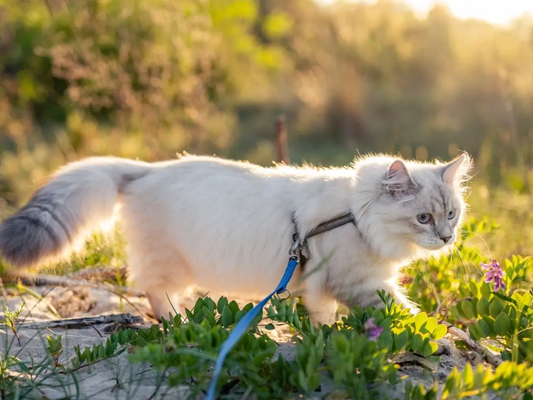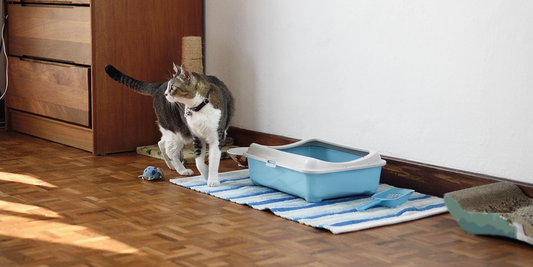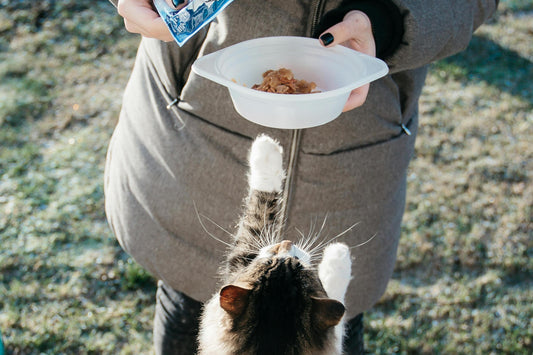Introduction
Cats are meticulous creatures, and their litter box habits play a crucial role in their overall health and happiness. Traditional litter boxes can become a hassle to maintain, leading to issues like odor buildup and unsanitary conditions. However, with advancements in technology, self-cleaning litter boxes have emerged as a convenient solution for cat owners. In this article, we delve into the world of self-cleaning litter boxes, focusing on how they address cat scratching behaviors and improve litter box hygiene.
Understanding Cat Scratching on Self-Cleaning Cat Litter Box
Cat scratching is a natural behavior that serves multiple purposes for felines. While it helps them maintain their claw health and mark their territory, it can also pose challenges when it comes to traditional litter boxes. Cats may scratch excessively, causing litter to scatter outside the box or leading to unpleasant odors. However, self-cleaning litter boxes offer a solution by minimizing the impact of scratching on litter box cleanliness.
Self-cleaning litter boxes feature automated mechanisms that sift through the litter, removing waste promptly after each use. This reduces the likelihood of cats encountering soiled litter, discouraging excessive scratching. Additionally, some models are designed with high-sided walls or covered compartments, further containing any litter kicked up during scratching.
The Benefits of Self-Cleaning Litter Boxes
1. Enhanced Hygiene
Self-cleaning litter boxes promote a cleaner environment for both cats and their owners. By promptly removing waste, these litter boxes minimize odor buildup and bacterial growth, ensuring a more hygienic space for cats to relieve themselves.
2. Reduced Maintenance
Unlike traditional litter boxes that require frequent scooping and cleaning, self-cleaning models automate the process, saving time and effort for cat owners. This convenience makes it easier to maintain a consistent litter box routine, which is crucial for a cat's well-being.
3. Stress Reduction
For cats prone to stress or anxiety, a clean and odor-free litter box environment can contribute to overall relaxation and contentment. Self-cleaning litter boxes create a more inviting space for cats, reducing the likelihood of litter box aversion or inappropriate elimination behaviors.
Addressing Common Concerns
1. Will my cat adapt to a self-cleaning litter box?
Most cats adapt well to self-cleaning litter boxes, especially if introduced gradually. Start by placing the new litter box next to the existing one, allowing your cat to familiarize themselves with it before fully transitioning.
2. Are self-cleaning litter boxes noisy?
While some models may produce minimal noise during the cleaning cycle, many are designed to operate quietly to avoid startling cats. Additionally, cats often acclimate to the sound over time, especially if they associate it with a clean litter box.
3. Do self-cleaning litter boxes require special litter?
While some self-cleaning litter boxes work best with clumping litter, others are compatible with various types, including silica gel and natural alternatives. Be sure to check the manufacturer's recommendations for optimal performance.
4. How often should I empty the waste receptacle?
The frequency of waste removal depends on factors such as the number of cats using the litter box and the model's capacity. As a general rule, aim to empty the waste receptacle at least once a week to maintain optimal cleanliness and odor control.
5. Can self-cleaning litter boxes help with litter box aversion?
Self-cleaning litter boxes can potentially reduce litter box aversion by providing a consistently clean and inviting environment for cats. However, addressing underlying causes of aversion, such as inappropriate litter choice or environmental stressors, is essential for long-term success.
6. Are self-cleaning litter boxes safe for kittens?
While self-cleaning litter boxes are generally safe for kittens, it's essential to supervise their use initially to ensure they don't become trapped or frightened during the cleaning cycle. Opt for models with safety sensors and consider starting with manual mode until your kitten grows accustomed to the device.
Conclusion
Investing in a self-cleaning litter box can revolutionize your cat's litter box experience while simplifying maintenance for you as a pet owner. By addressing cat scratching behaviors and prioritizing hygiene, these innovative devices promote a harmonious environment for cats and their human companions. Say goodbye to litter box woes and hello to a cleaner, happier home with a self-cleaning litter box








